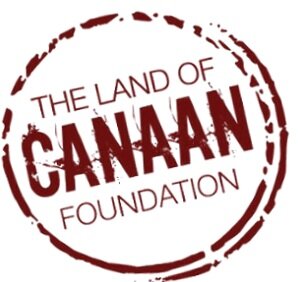A Manufactured Poverty
Visualizing Palestine - A Stolen Yield
Visualizing Palestine - A Stolen Yield
2015: June 5 marks the start of the Israeli occupation of the Palestinian West Bank and Gaza Strip that began in 1967. Today, nearly half a century later, the occupation continues to have a devastating impact on the daily lives of Palestinians. A graphic example of this impact can be seen through the Israeli restrictions exerted on the Palestinian economy.
The infographic "A Stolen Yield" highlights the economic losses faced by Palestinian farmers, amounting to at least $2.2 billion each year. These losses result from Israeli land expropriation, severe restrictions on water and fertilizer use, and restrictions on international trade.
At the same time, Israeli settlers benefit from farming stolen land in the West Bank, and Israelis exploit over 80% of the water extracted each year from the mountain aquifer in the occupied West Bank.
Infographic and information from our friends at Visualizing Palestine.
Imagine what Palestinian farmers can do when they are free and not living under the manufactured poverty of military occupation.
We at The Land of Canaan Foundation are always concerned about Palestinian agriculture since we support farming communities. This post from the Palestinian Business Committee for Peace and Reform gives details of the extent of the loss our farming communities are living with:
As Visualizing Palestine's latest infographic illustrates, over the past 20 years the agriculture sector in Palestine has shrunk from 13.5% (in 1994) to 4.1% (in 2013) of GDP due in large part to Israeli destruction of agricultural fields and groves as well as restrictions on Palestinian access to land, water, and fertilizer. As a result, current Palestinian agricultural exports to Europe (the closest Western market) are valued at only $19 million per year. By way of contrast, Israeli settlers operating illegally on Palestinian land and given preferential access to needed inputs export $285 million worth of agricultural goods to Europe each year. The World Bank estimates that lifting land and water restrictions in the West Bank alone would add $704 million to GDP each year.
Destruction of fields and groves
Israeli authorities have uprooted or destroyed more than 2.5 million trees since 1967 in order to make room for construction of settlements, settlement infrastructure, and the separation wall. About a third of these trees were olive trees, 34,000 were palm trees, and the rest were various fruit trees. Based on average annual productivity and production values, the estimated losses due to this destruction is $138 million per year.
Land
Since 1995, Palestinians have lost 60% (66,000 hectares) of their total farmable (arable) land to Israeli settlements, the wall, military zones, and other closures. In one swoop, Gaza lost 30-40% of its arable land in 2009 when Israel declared that Palestinians coming within 1000 feet of the border would risk being shot without warning.
Water
Israeli water consumption on both sides of the green line is three to four times that of Palestinians. On average, Palestinians consume about 73 liters a day (as compared with the WHO recommended daily amount of 100 liters) while Israelis consume 242 liters per day. Among the reasons for this disparity include discriminatory provisions of the Oslo II Accords, Israeli prohibitions on the development of new water sources, Israeli restrictions on upgrades to the current pipes system, and the Israeli wall which has separated many communities from their traditional wells and other sources of water. In lieu of allowing Palestinians to develop their own water resources, the Israeli water company, Mekorot, sells water to Palestinians at a price of $38 million in 2009.
Without full and fair access to natural resources including water and land, Palestinians will continue to be hamstrung in their efforts to develop the agriculture sector and the economy as a whole.
Palestinian Business Committee for Peace and Reform, Washington DC.

